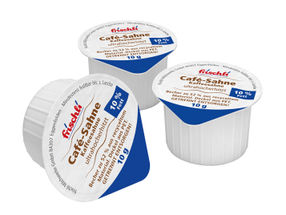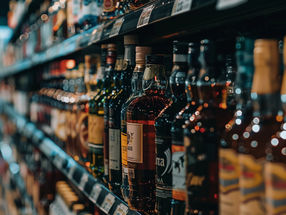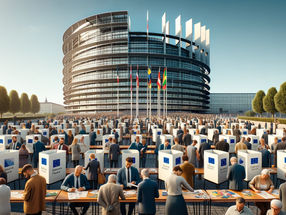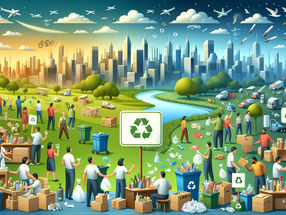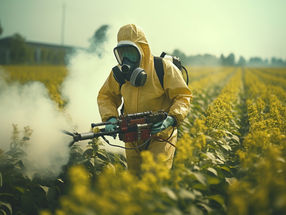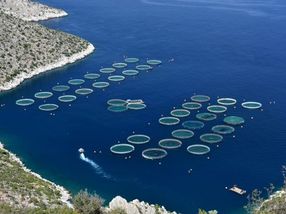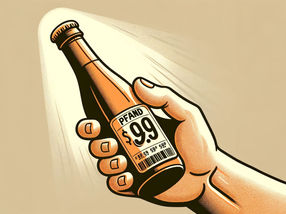Food labeling in the EU is often misleading
Constantly changing information makes consumers lose track
Consumers can easily lose track of the many different claims on food, criticize EU auditors in a report published today. Food labeling is supposed to help people make informed decisions when shopping. However, European consumers are being bombarded with more and more promises, logos, slogans, seals of approval and ratings that are not only confusing but can be downright misleading.

Food labeling in the EU is often misleading
Europäischer Rechnungshof - European Court of Auditors

Keit Pentus-Rosimannus
Europäischer Rechnungshof - European Court of Auditors


Labels contain information about the content and properties of food. They are also often intended to make products more attractive by emphasizing alleged benefits such as "healthy", "organic" or "gluten-free". According to the auditors, the EU regulations ensure that the labels contain basic information for consumers, which is a good starting point. However, they also found a number of worrying gaps in the legislation as well as problems with controls and sanctions.
"Rather than providing clarity, food labels often lead to confusion; there are hundreds of different labeling schemes, logos and claims that shoppers have to decipher," said Keit Pentus-Rosimannus, the European Court of Auditors member responsible for the audit."Companies are being very creative with the information on packaging. However, EU rules are not keeping pace with the constantly evolving market, meaning that around 450 million European consumers are intentionally or unintentionally exposed to misleading messages."
In fact, according to the auditors, the gaps in EU legislation could encourage consumer deception. For example, the EU regulations make it possible to emphasize nutritional and health-related benefits even on products with a high fat, sugar or salt content. For example, products containing sugar, such as energy bars, could be advertised as high-protein products. Consumers are also increasingly being confronted with claims about the alleged health-promoting properties of plant-based substances that are not subject to any regulations. These include claims such as "releases new energy" or "improves physical performance", even if these are not scientifically proven.
Some consumers could even feel disadvantaged by the labeling. For example, food allergy sufferers sometimes have to deal with overly cautious allergen warnings and vague statements such as "may contain ...". In practice, this limits their choices. Vegetarians and vegans are particularly affected: The use of the label "vegan" or "vegetarian" is not regulated, as there is no EU-wide definition for such products.
Nutritional information on the front of packaging such as Nutri-Score, NutrInform and Keyhole is not used in all EU countries, as none of the systems have become established. However, standardized regulations could help consumers identify healthier foods and potentially prevent diet-related diseases. Instead, the coexistence of different systems in EU countries, each with a different message and objective, has the opposite effect: confusing consumers rather than providing guidance.
This tendency is reinforced by the flood of voluntary labels, logos and claims designed to entice consumers to buy. These include so-called "clean labels" about the absence of certain ingredients (e.g. "antibiotic-free") and non-certified properties such as "fresh" or "natural", as well as a wide range of environmental claims that amount to greenwashing. The auditors regret that the current regulations cannot prevent such practices.
Despite this criticism, the auditors found that consumer education does not appear to be a high priority. The EU had only made around 5.5 million euros available for awareness campaigns on food labeling between 2021 and 2025, and the EU countries had only carried out such campaigns sporadically. For example, the date information required on products is often not properly understood by consumers as the difference between the use-by date and the best-before date is not clear.
Food companies can also take advantage of weak controls and sanctions. In the case of mandatory claims, the controls generally work well. However, voluntary claims such as nutrition and health claims or online food sales (which have increased significantly since the pandemic) are rarely - if ever - checked, and websites outside the EU are almost completely unmonitored. In addition, the fines imposed for infringements are often not dissuasive, effective or proportionate, according to the auditors.
Note: This article has been translated using a computer system without human intervention. LUMITOS offers these automatic translations to present a wider range of current news. Since this article has been translated with automatic translation, it is possible that it contains errors in vocabulary, syntax or grammar. The original article in German can be found here.
Other news from the department politics & laws
Most read news
More news from our other portals
See the theme worlds for related content
Topic world Food safety
Food safety is at the heart of the food and beverage industry. It ensures that the food we eat every day is not only nutritious, but also free of harmful contaminants. From field to plate, the industry monitors and regulates every step of the process with strict quality controls, advanced testing methods and continuous research.

Topic world Food safety
Food safety is at the heart of the food and beverage industry. It ensures that the food we eat every day is not only nutritious, but also free of harmful contaminants. From field to plate, the industry monitors and regulates every step of the process with strict quality controls, advanced testing methods and continuous research.









